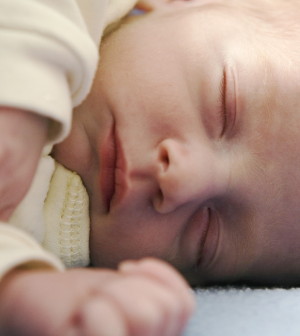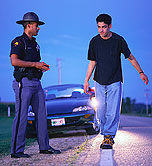- 8 Ways to Increase Dopamine Naturally
- 7 Best Breads for Maintaining Stable Blood Sugar
- Gelatin vs. Collagen: Which is Best for Skin, Nails, and Joints?
- The Long-Term Effects of Daily Turmeric Supplements on Liver Health
- Could Your Grocery Store Meat Be Causing Recurring UTIs?
- Are You Making This Expensive Thermostat Error This Winter?
- Recognizing the Signs of Hypothyroidism
- 10 Strategies to Overcome Insomnia
- Could Artificial Sweeteners Be Aging the Brain Faster?
- Techniques for Soothing Your Nervous System
Tougher Alcohol Laws for Adults May Also Lower Teen Drinking


New research suggests that as a state’s alcohol laws get tougher, teen drinking rates drop — even if the laws are targeting adults and not teens.
“Nobody’s ever looked to see how policies explain big differences between kids’ drinking among different states,” said study co-author Dr. Timothy Naimi, an alcohol epidemiologist at Boston Medical Center. “There’s a strong overall relationship between [alcohol] policies and teen drinking, but if you account for the difference in youth-specific policies, you find the adult-oriented policies have an equal or greater effect on teen drinking.”
Naimi’s team considered policies such as alcohol taxes, restricting alcohol sales to certain hours, not selling alcohol on Sundays, banning happy hours and restrictions on how many places sell alcohol, he said. “Things that reduce excessive drinking are things that keep the price up and keep alcohol a bit more inconvenient to get,” he said.
The findings were published online June 1 in the journal Pediatrics.
The researchers came up with a scoring system to assess how strong alcohol-related policies were in each of the 50 states. The system was based on 29 alcohol-related laws, the likely effectiveness of those laws and how well they were implemented.
Then they compared the overall score they derived for each state to the rates of teen drinking and binge drinking in each state, based on surveys by the U.S. Centers for Disease Control and Prevention from 1999 to 2011.
After considering other factors that may influence teen drinking, the researchers found that for every 10 additional percentage points in a state’s overall score of stronger alcohol-related laws, teens had 8 percent lower odds of drinking and 7 percent lower odds of binge drinking.
Even when the researchers made calculations only for alcohol-related legislation that targeted adults, the odds of teen drinking dropped 6 percent and the odds of teen binge drinking dropped 4 percent.
“Taking into consideration the power of adult influence upon youth behaviors, it is not surprising that the findings show polices that target adults have an impact on teen behaviors,” said Mayra Mendez, program coordinator for Intellectual and Developmental Disabilities and Mental Health Services at Providence Saint John’s Child and Family Development Center in Santa Monica, Calif. “There is a relationship between youth drinking patterns and adult drinking patterns, both for positive and negative behaviors.”
Still, the findings do not mean that the policies in these states caused the teens not to drink, said Frank Farley, a professor of psychology at Temple University in Philadelphia. This analysis is quite large and involved a lot of statistical calculations, he said, so the correlation between alcohol policy scores and teen drinking may not mean one is causing the other.
“In such a complex set of data and analyses, it is often difficult to draw unambiguous conclusions for use in the public policy arena, and such is this case,” Farley said. “I would not support any changes in public policy based on this study. More work needs to be done to determine what might be influencing what.”
He did explain, however, some ways adult-related policies might affect teen drinking behaviors.
“Adult drinking may influence teen drinking through modeling and imitation, which is a strong form of learning,” Farley said. “Some research suggests that the role parents play is important. Parents might never drink, but if they allow supervised drinking of their teenager, it still validates the behavior for the teenager.”
Naimi also suggested that laws aimed at adults might also have a trickle-down effect of sorts on teens.
“Some of these adult-oriented policies, such as taxes, might have a direct effect on youth because they tend not to have a lot of disposable income,” Naimi said, and taxes increase the price of alcohol. “We also know that adults provide youth with most of the alcohol they consume.”
Policies that restrict alcohol access or increase its price can reduce the indirect negative effects of alcohol on nondrinkers, too, Naimi said.
“A large proportion of the adverse effects of alcohol do not occur only to the person consuming alcohol but to other people in society,” such as domestic violence and drunk driving accidents, he said. “Part of the duty of society is to regulate dangerous products, not just adverse effects for kids but also for adults who don’t drink alcohol.”
More information
For more about underage drinking, visit the U.S. Centers for Disease Control and Prevention.
Source: HealthDay
Copyright © 2026 HealthDay. All rights reserved.










